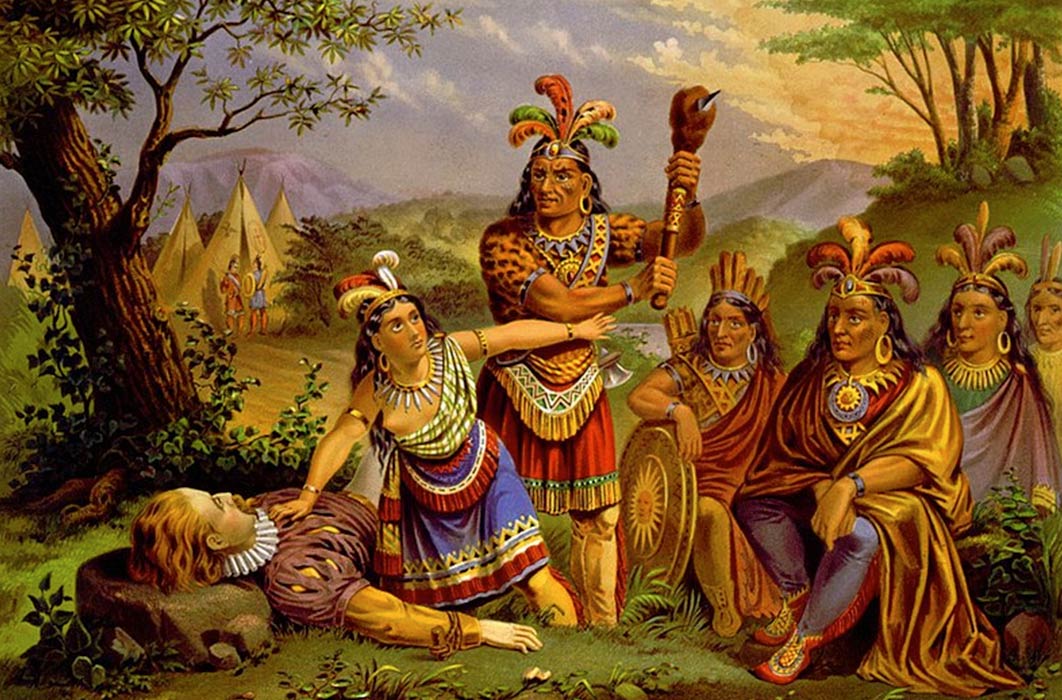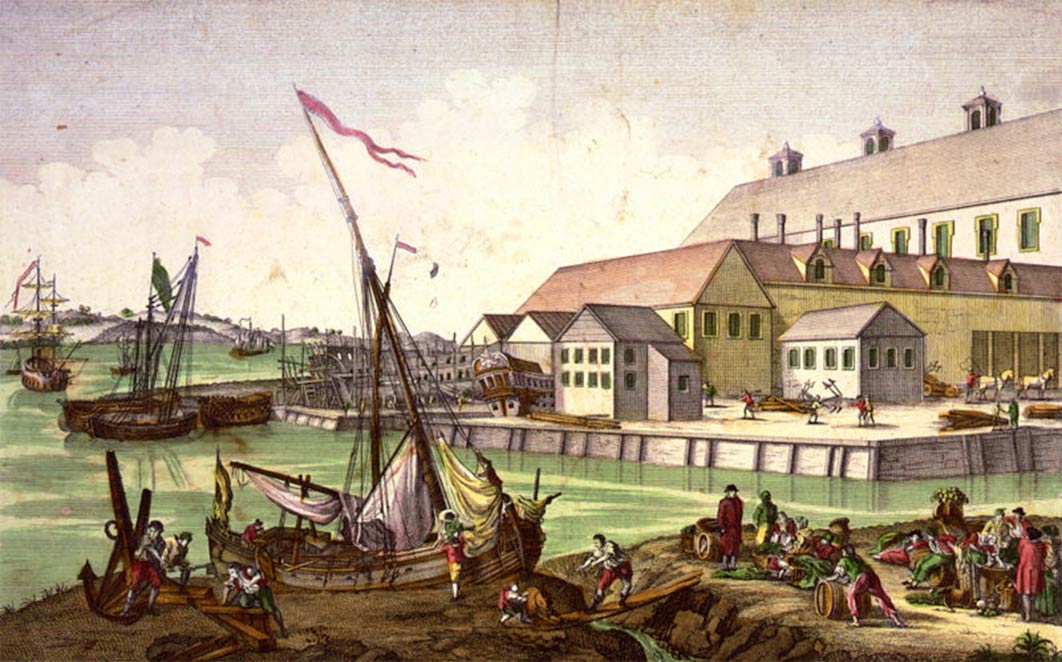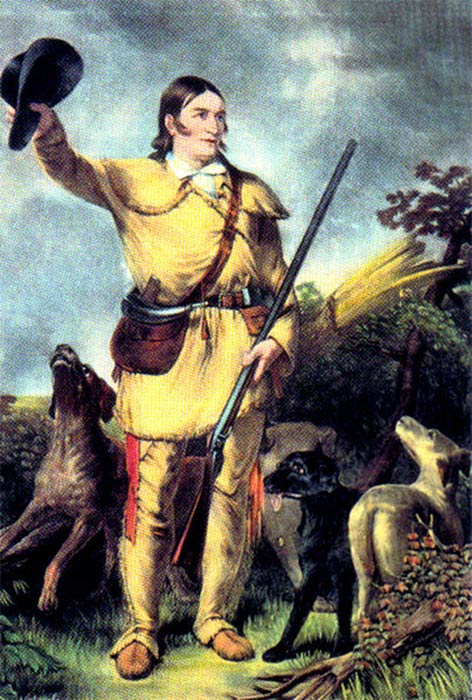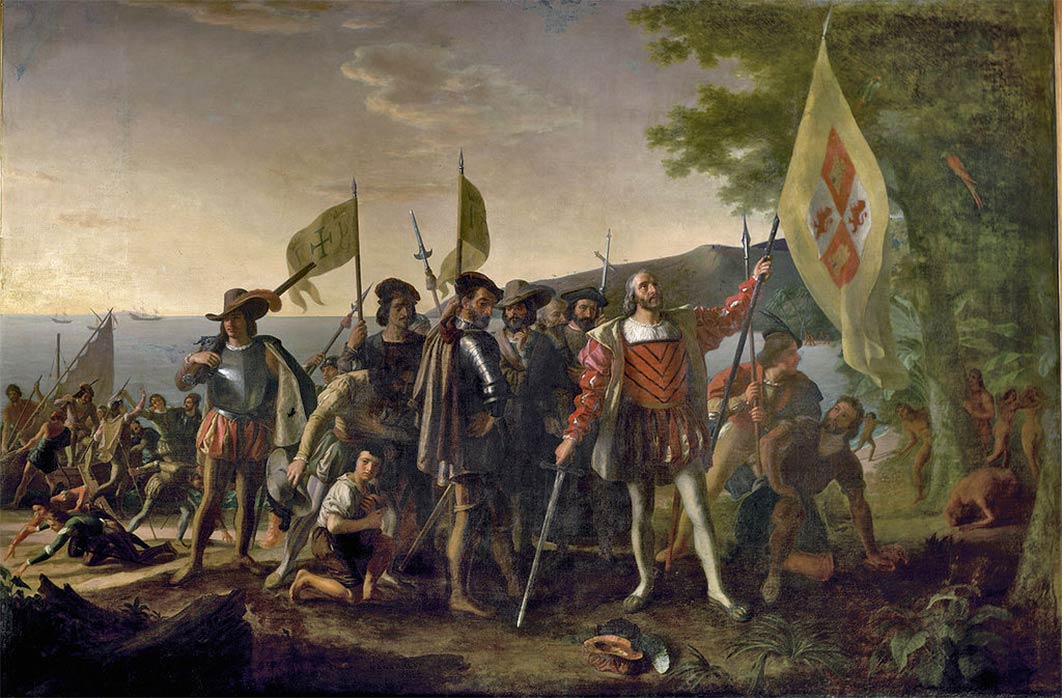
Heroes, Lumberjack-Giants And Monsters Of American Mythology
The term ‘American folklore’ encompasses the stories, myths, tall tales, music, proverbs, fairy tales, demons, giants and legends that arrived on the shores of North America with the first Europeans in the 16th century. The characters and events that occur in American folklore emerged in a non-scientific New World as explanations for all the new natural phenomena the settlers observed, that affected their prolonged survival. Therefor within American folklore one finds evidence of the relationship between humans, nature and the perceived spirit world.

People working on the Salem waterfront wharf, Massachusetts, where supernatural thinking spilled into the Salem witch trials of 1692 and 1693 by Balthasar Friedrich Leizelt. (1770-) (Public Domain)
Superstitious Pioneers
The first American pioneers, who crossed the swampy South to settle in the West, showed steely determination as they hunted and gathered in the forests, fished the seas and rivers, fought off bears, mountain lions and wolves and lived in a state of constant insecurity about tomorrow. With no podcasts, Netlfix and YouTube, families spent evenings telling campfire tales, and it was from these flickering orange early-American scenes that the heroes of American frontier folklore emerged.

David Crockett (August 17, 1786 – March 6, 1836) was a classic American folk hero, from ‘Exploring the West’ by John Gadsby Chapman (Public Domain).
Tall tales about the ‘American Old West Frontier’ were often seasoned with many unbelievable elements that were recounted sincerely as being true, and American folklore, like most, is structured on exaggerations and fictionalisations of actual events. Carl Gustav Jung (1875-1961), the Swiss founder of analytical psychology, suggested the events and characters in world myths are archetypes arising from man’s shared collective unconscious and his research in the fields of mythology solved many problems in psychiatry, anthropology, literature, archaeology, philosophy and theological studies in the early 20th century. Furthering Jung´s research into the archetypes of mythology American mythologist Joseph Campbell, in his 1949 book, The Hero With a Thousand Faces, described the Hero´s Journey as any story where: “a hero ventures forth from the world of common day into a region of supernatural wonder: fabulous forces are there encountered and a decisive victory is won: the hero comes back from this mysterious adventure with the power to bestow boons on his fellow man.¨
Christopher Columbus First American Folk Hero
The very founding of the United States is veiled in myths and legends that were favoured for their narrative, and many of those that supported the formation of the new American culture and belief systems have survived to this day. As is the case in modern American media, narratives can sometimes be a little bit true and a tad false, but more often ridiculously untrue and wildly false. Perhaps no stories associated with the foundation of America are currently so controversial as the adventures of Christopher Columbus, America's first colonial hero.

Christopher Columbus landing in the ´West Indies´ on October 12, 1492 by John Vanderlyn. (1847) (Public Domain).




